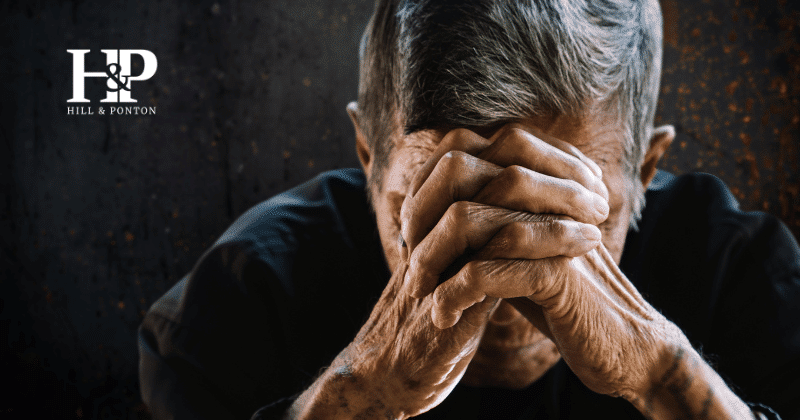The VA’s schedule of ratings for Mental Disorders is the metric by which the VA uses to rate a mental illness. When viewing the guidelines the VA uses to rate mental illness, it is often easy to imagine the social impairment, such as marital problems, withdrawal, an overly quick temper. However, many who do not suffer from mental illness often overlook the occupational impairment that stems from mental illness. Many feel that the occupational impairments from mental illness are a sign of weakness, or a lack of effort on the part of the veteran. This couldn’t be further from the truth.
Someone with severe depression may look fairly healthy and normal each day at work, but inside, there can be a great deal of cognitive and attentional problems. Depression not only changes the way we feel, but it drastically changes the way we think as well. In fact, depression can literally change the way we perceive the world. Some studies have shown that people in the midst of depression actually see less color than those who aren’t depressed; the depressive actually sees the world as more gray than it actually is.
Those with depression have severe problems in episodic memory (recalling events that happened to you), executive function (the ability to plan properly, short term memory, reasoning, and problem solving), and processing speed, as well as drastic reductions in their ability to pay attention to the task at hand. This can, of course, be devastating in the workplace, and ese symptoms increase with the severity of the depression.
There are several theories as to why depressed people have these deficits in cognition. Imaging has shown that certain regions of the brain related to cognition are less active, and certain regions are MORE active than in non-depressed people. One theory posits that these cognitive problems stem from a problem with resource allocation in the brain. In other words, our brain has a finite amount of resources, and these resources that are normally used for cognitive tasks or to pay attention to a task are instead turned against your brain, working hard on processing or suppressing emotions that are irrelevant to the task at hand.
Cognitive problems are not the only way in which depression can impair a veteran’s ability to work. Those with depression sometimes have migraines or suffer from severe insomnia or hypersomnia, and their sleeping difficulties not only make it nearly impossible to follow rigid work schedules, but also add to the cognitive problems they are already experiencing. Social isolation and withdrawal also can have a severe impact on work, especially in jobs where one needs to frequently interact with clients or coworkers.
And finally, those who suffer from severe depression have problems with motivation on two levels. First, there is immediate motivation. The depressed often have trouble getting out of bed, showering, or eating, let alone tackling a big work project. Second, there is a problem with what I call “existential motivation”- the motivation and drive to continue your existence or to further yourself. The depressed often “give up” on life, or purposefully sabotage themselves in order to fuel their own self-hatred.
Veterans who suffer from depression cannot continue the mentality that they can “tough it out,” and need to seek help. The VA also needs to recognize that depression can be just as debilitating as a physical disability, especially when it comes to the veteran’s ability to work.



